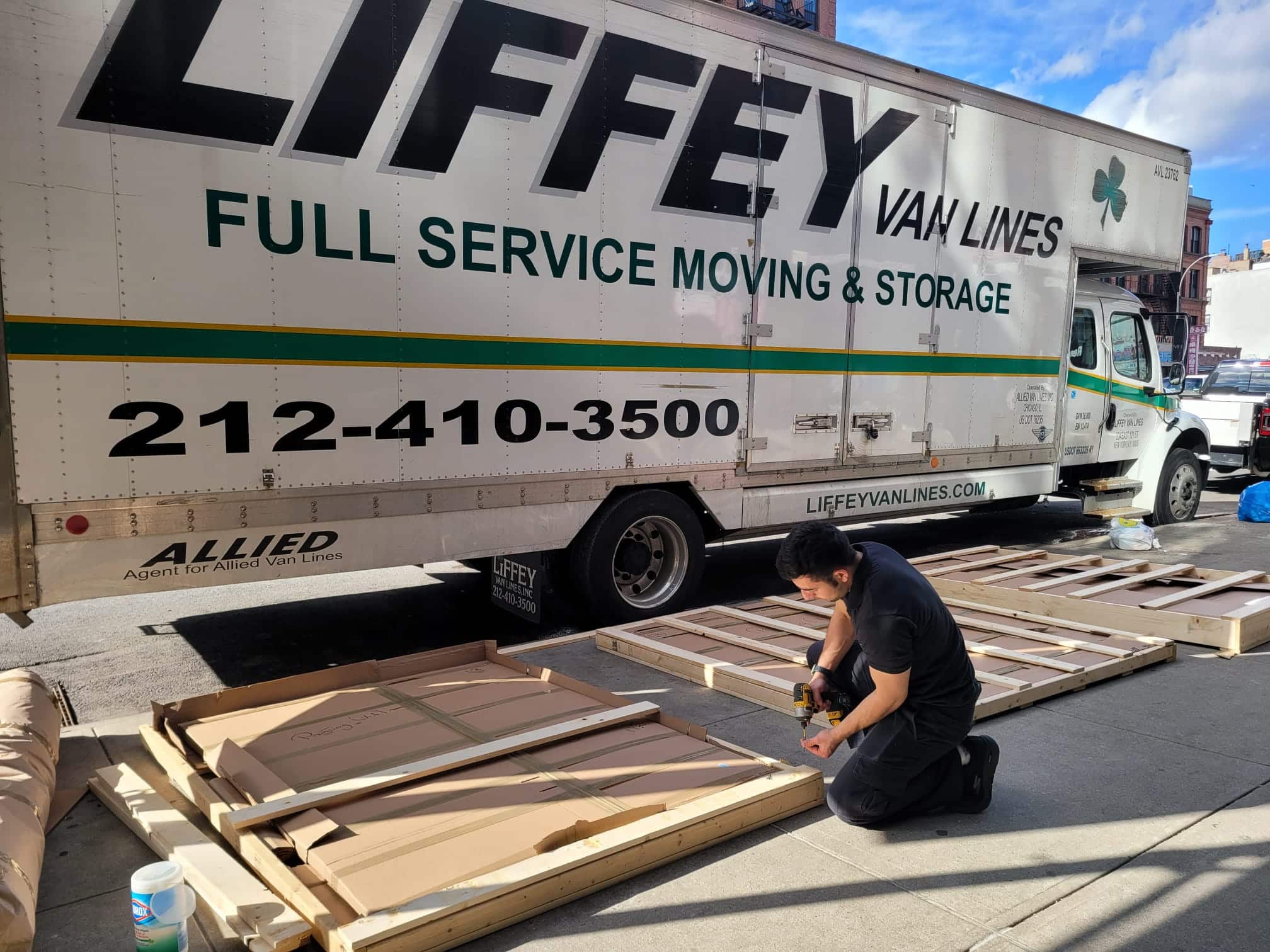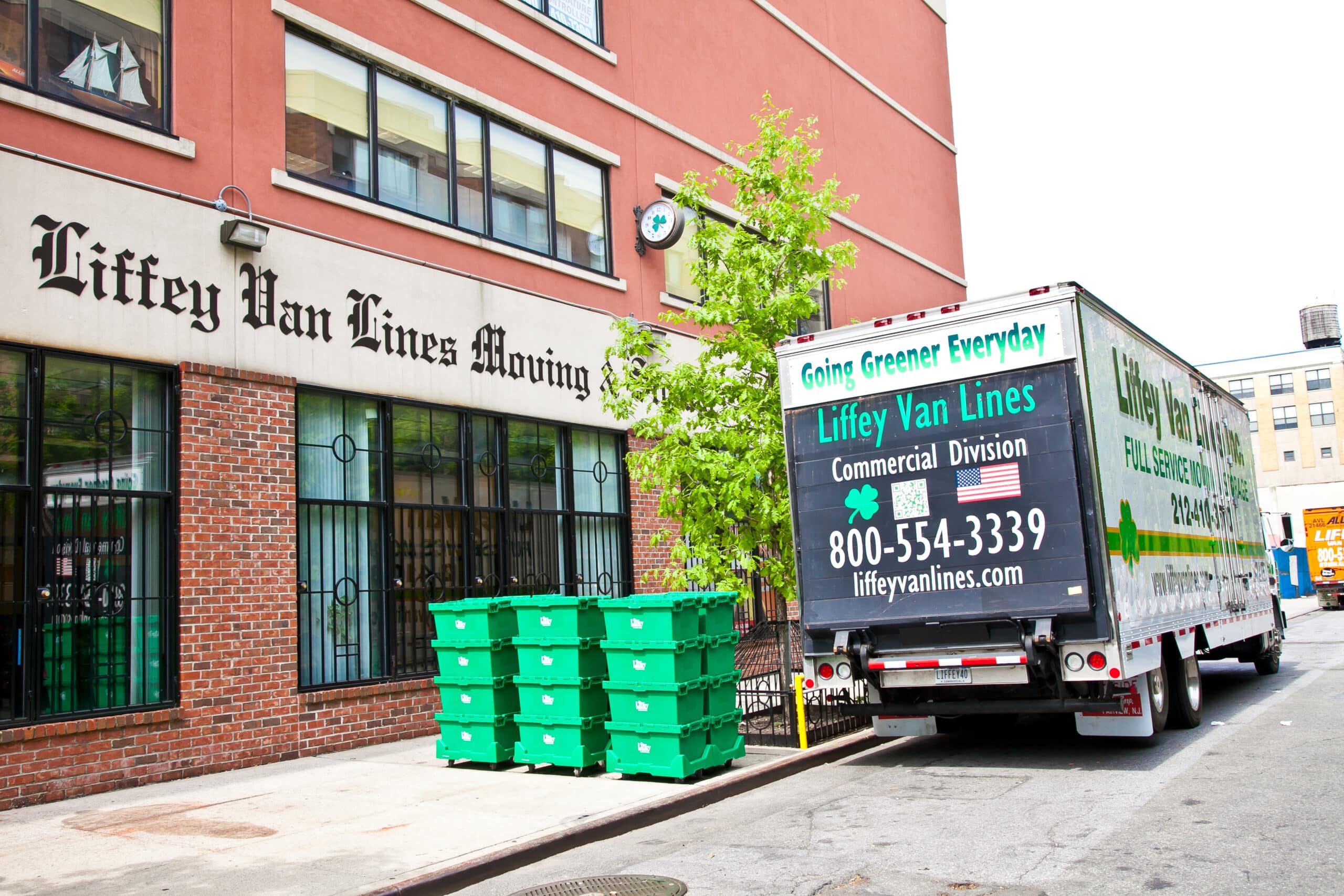Table of Contents
It’s Saturday morning in Manhattan, and your elevator reservation just got canceled — again. If that scenario sounds familiar, you already know NYC apartment moves come with a unique set of challenges. From certificates of insurance (COIs) to parking permits and strict building access schedules, every move in this city requires thorough planning.
Quick Answer: The key to successful NYC apartment moves is planning ahead — secure your building’s COI, reserve freight elevators early, and hire professional movers familiar with New York’s local regulations. This ensures your move proceeds smoothly despite the City’s logistical complexities.
According to the NYC Department of Buildings, each residential building sets its own moving access rules. Failing to comply can result in last-minute cancellations, fines, or damage delays. That’s why choosing a mover with deep NYC experience — like Liffey Van Lines — is critical.
Pro Tip: Liffey Moving’s 45+ years of New York experience means we’ve worked with thousands of co-op boards and management companies. We handle COIs, elevator access, and timing directly with your property manager, saving you significant stress on moving day.
For those unsure where to begin, this complete guide outlines the building logistics, essential steps, and insider advice for seamless NYC apartment moves.
---
Co-op boards and management companies across Manhattan, Brooklyn, and Queens often set strict guidelines for residential moves. These range from Certificates of Insurance (COI) to freight elevator reservations, protecting both residents and building assets.
In pre-war walk-ups like those in the East Village, you’ll likely deal with narrow staircases and limited space for maneuvering. Meanwhile, in high-rises across Midtown or downtown Brooklyn, you must reserve the freight elevator — sometimes weeks in advance.
To secure your elevator:
Pro Tip: Liffey Moving includes free COI paperwork with all NYC apartment moves. We communicate directly with your building to ensure compliance and confirm your reservation ahead of time.

If your building doesn’t have an elevator, Liffey’s team is prepared with specialized equipment for narrow staircases and multi-floor carries. These details directly influence move time and estimates, which is why flat-rate pricing eliminates cost uncertainty.
For more details about service options, explore our moving services and learn how guaranteed pricing makes NYC apartment moves predictable.
---
Finding legal parking for moving trucks in New York can feel like solving a puzzle. The NYC Department of Transportation mandates temporary permits for large vehicles occupying active street zones.
Here’s what you need to know for NYC apartment moves:
Pro Tip: We handle DOT permit applications for clients moving in dense areas like Midtown and SoHo — ensuring your truck space is reserved when you need it.

For tighter streets in Brooklyn Heights or the Bronx, smaller moving vans often replace traditional trucks to fit the narrow roadways — another reason to rely on professionals familiar with borough-specific regulations.
If your move includes storage transfer, visit our secure storage options for flexible solutions within NYC.
---
Choosing the right time of year can save you substantial cost and stress. May through September is NYC’s peak moving season, where rates spike due to high demand. Winter months, on the other hand, often offer better availability and potential discounts.
Analyzing NYC apartment moves seasonally helps in timing your relocation strategically:
| Season | Average Discount Availability | Demand Level | Advantage |
|---|---|---|---|
| Winter (Dec–Feb) | 10–20% | Low | Flexible scheduling |
| Spring (Mar–Apr) | Moderate | Moderate | Milder weather |
| Summer (May–Sep) | None | High | Best for lease transitions |
| Fall (Oct–Nov) | 5–10% | Average | Balanced conditions |
Pro Tip: Aim for mid-week, mid-month bookings for lower costs — weekends and month-ends are premium times for NYC movers.

Check out our long-distance moving options if your move extends beyond the city; Allied partnership ensures secure delivery across all states.
---
While costs depend on the apartment size and distance, professional movers generally price according to time, labor, and specialty handling. Here’s a general estimate for NYC apartment moves:
| Apartment Type | Average Local Cost | Typical Moving Time |
|---|---|---|
| Studio | $900–$1,200 | 3–4 hours |
| 1 Bedroom | $1,200–$1,800 | 4–6 hours |
| 2 Bedroom | $1,800–$2,600 | 6–8 hours |
| 3 Bedroom | $2,600–$3,800 | 8–10 hours |
Pro Tip: Liffey Moving offers guaranteed flat-rate pricing — no hidden fees for stairs, long carries, or building paperwork. You’ll never face unexpected costs.
Hidden fees in NYC moves often stem from parking delays or unregistered building access. Confirm these details before move day and ask your movers to include them—transparency ensures trust. For details on how pricing works, see understanding your moving quote.
---
Your planning timeline determines how stress-free your experience will be. In NYC, securing elevator time slots and permits is all about early preparation.
Follow these key steps:
1. 3–4 weeks prior: Book your mover and submit COI request to building management.
2. 2 weeks prior: Reserve freight elevator and confirm time windows.
3. 1 week prior: Label boxes and notify doorman or super about move timing.
4. 1 day prior: Confirm weather forecast, truck parking, and elevator access.
Pro Tip: As NYC’s Allied Van Lines agent, Liffey can scale your move — from local one-day relocations to national shipments — all within the same timeline structure.
Check our specialty services for items requiring extra care, like pianos, fine art, or antiques.
---
Each borough requires its own moving strategy:
Pro Tip: Having completed thousands of NYC apartment moves across all five boroughs, Liffey’s team tailors routes and truck sizes to meet each neighborhood’s constraints.
---
About 3–4 weeks’ notice ensures your preferred date and time are secured, especially during summer peak season.
Yes, nearly all managed buildings require a Certificate of Insurance. Liffey Moving handles this process directly with your building management.
Mid-week moves are typically cheaper and less congested than weekends or month-ends.
Absolutely. Liffey Moving provides over 300,000 square feet of climate-controlled storage for temporary or long-term needs.
According to NYC DOT regulations, moving trucks require temporary street occupancy permits, which professional movers can secure in advance.
Most moves complete in 4–8 hours, depending on distance, building size, and elevator access.
Our 45+ years of NYC expertise, Allied Van Lines partnership, and guaranteed flat-rate pricing deliver exceptional transparency and reliability.
---
Summarizing key takeaways:
With over 45 years of New York City expertise and Allied’s global support, Liffey Moving ensures every transport — local or long-distance — runs smoothly. For unmatched reliability in NYC apartment moves, get your free quote today or call (212) 410-3500 to speak with our expert team.


